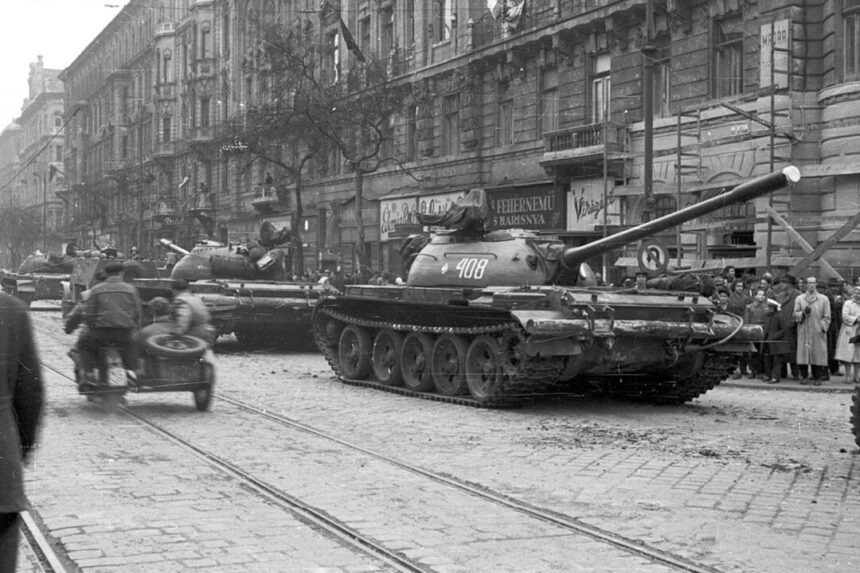When totalitarianism is disguised as rationality.
In this volume, Marianna Davidovich vividly recounts the world’s horrific experiences with the evil of communism. It’s a ghastly record, littered with the bodies of a hundred million victims and the lost liberties of hundreds of millions more. No one should have ever expected otherwise; even the founder of modern communist ideology, Karl Marx, advocated extreme violence as a necessary ingredient in the communist formula.
What the world refers to as “communist” countries—such as the Soviet Union of Lenin and Stalin, Pol Pot’s Cambodia, Mao’s China, Castro’s Cuba, and others Marianna discusses—would not be labeled as such by Karl Marx himself. He postulated that communism would be the end game of all history and would be characterized by government “withering away” after a period of socialism and its brutal “dictatorship of the proletariat.”
So, what we widely refer to as communist countries are, according to both Marx and the governments of those very countries themselves, socialist. None of them called themselves communist; all of them proudly adopted the socialist label. The full name of the old Soviet Union, for example, was the Union of Soviet Socialist Republics.
Marx’s prediction that socialist dictatorships would eventually dissolve into government-less, communist utopias was embraced by pseudo-intellectuals as some sort of messianic prophecy. But how could Marx know the future of his own country, let alone that of others? Was he a palm reader? Did he use tarot cards, a crystal ball, or a Ouija board? Or did God (in whom he didn’t believe) generously gift him with visionary powers that no one else has?
Of course, none of those things apply here. Marx was no fortune-teller. He was a charlatan, an angry and nasty scribbler with vile, racist, and anti-Semitic tendencies. He mooched off others all his life. As British historian Paul Johnson explained in his book, “Intellectuals,” Marx was cruel to his own family. He yearned for the violence his predicted socialist dictatorships would produce. Hardly anyone showed up for his funeral.
Marx’s notion that under communism, government would “wither away” was always a nonsensical non-starter. He never explained how or why that would occur. What would possibly prompt dictators with absolute power to one day just walk away from it? That’s more like a dumb fairy tale than a prophecy.
Now that Marianna has provided the awful details of death and destruction in the countries influenced by Marx’s teaching, the big remaining question is WHY? Why does socialism so naturally produce mayhem on an industrial scale?
Wait a minute, you ask. What about the peaceful “democratic socialism” of Scandinavia?
Scandinavian countries are not socialist. They have no minimum wage laws, almost no interference with prices and the market forces of supply and demand. They have lower taxes on business and more school choice than the United States. They boast trade-based, globalized economies, and few if any nationalized industries.
The prime minister of Denmark recently declared, “I know that some people in the U.S. associate the Nordic model with some sort of socialism. Therefore, I would like to make one thing clear. Denmark is far from a socialist planned economy. Denmark is a market economy.” The Index of Economic Freedom ranks Denmark, Norway, and Sweden as among the freest (most capitalist) in the world.
It’s true that after World War II, Scandinavian countries stumbled into generous welfare states, but being no more than a welfare state is not by itself dictionary socialism. More to the point, those nations eventually turned away from even that—cutting taxes and spending and reviving private sector entrepreneurship. Margaret Thatcher forced the same changes in Britain when, by the late 1970s, her country’s welfare state turned Britain into “the sick man of Europe.”
When countries adopt a blend of socialism and capitalism—a formula once termed “the middle way”—socialists claim credit for progress real or imagined. But repeatedly, such situations reveal that most if not all the “progress” such places achieve is not because of the socialism they’ve adopted, but because of the capitalism they haven’t yet destroyed. Capitalism produces wealth (even Marx admitted to that), whereas socialism and socialists simply confiscate and redistribute it.
Back to the central question: Why does socialism so naturally produce mayhem on an industrial scale?
One very big reason is its accumulation and centralization of power, the most toxic motivation in human history. The desire to dominate and control, to plan other people’s lives, to push others around and take their stuff, to monopolize one corner of society after another—all these elements of a “power trip” are part and parcel of the socialist vision.
But socialism promises to help the poor and the needy, you say! Well, of course, it promises such things. How far would it get if its advocates told the truth? Lenin, Stalin, Mao, Castro, Pol Pot, etc. all proclaimed “solidarity with the people,” especially the poor. They never honestly declared, “Give us power, and we will crush dissent and throw you to the dogs for opposing our plans!”
Socialism is rightly and widely perceived as diametrically opposed to capitalism. So, it can’t possibly be defined as acts of caring, sharing, giving, and being compassionate toward the needy. There is demonstrably more caring, sharing, giving, and compassion toward the needy under capitalism!
Even when it comes to most foreign aid, capitalist countries are the donors and socialist countries are the recipients. Socialism does not focus on creating wealth but rather on confiscating and consuming it. The key characteristic of socialism is force, as it does not rely on voluntary participation. Socialists prioritize their plans over individual freedoms, claiming to know what is best for everyone. They reject the idea of human nature and believe they can mold society to their liking. Socialism stifles individual success and calls for mandatory compliance with its ideas. It goes beyond being anti-capitalism; it is anti-capital itself, undermining the very system that creates wealth. Conflict is central to the socialist ideology, as they thrive on division and confrontation.
Renowned economist Ludwig von Mises emphasized that the choice between capitalism and socialism is a choice between social cooperation and societal disintegration. Communism, as envisioned by Karl Marx, is an unrealistic and undesirable fantasy that leads to full-blown socialism in practice. It is essential to recognize the dangers of socialism and its impact on society.
Please note that the views expressed in this article are the author’s opinions and may not necessarily reflect those of The Epoch Times. Please provide an alternative version.
Source link







